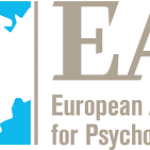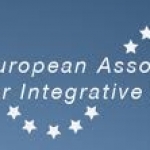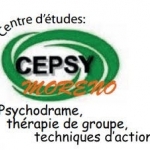Legal and Ethical Grounds for Psychotherapy
The Psychotherapy act encompasses
all the professional actions, i.e. the autonomous,
interdisciplinary, relationship-based and evidenceinformed
psychotherapeutic methods, for the treatment of psychological,
psycho-social and psycho-somatic disorders and difficulties. A
relationship of trust, empathy and confidentiality between the
Psychotherapist and the client is essential for effective clinical
practice. The Psychotherapy act is underpinned by national and
international ethical codes which respect the dignity, autonomy and
uniqueness of all human beings. Psychotherapy is an independent
profession from psychology, psychiatry and counselling.
Psychotherapists usually have a first degree followed by a
professional, highly specialized, theoretical and clinical training
which includes research methodology and continuous professional
development. The range of psychotherapeutic modalities is broad,
and the profession is constantly evolving new developments in
theory and clinical practice.
The term Psychotherapy covers a
range of approaches and methods. They all involve a psychological
(as distinct from medical or pharmacological) treatment for a range
of psychological, emotional and relationship difficulties and
disorders. Each approach is based on a well-established body of
theory, methodology and research, grounded in a philosophy of
person and the human condition. (Following information is based on
Official source of European Association for Psychotherapy, our
organization recognizes and encourages Strasbourg Declaration on
Psychotherapy and other acts elaborated by EAP).
Statement of Ethical Principles
of European Association for Psychotherapy
PREAMBLE: Psychotherapists respect the dignity and worth of the individual and strive for the preservation and protection of fundamental human rights. They are committed to increasing knowledge of human behaviour and of people's understanding of themselves and others and the utilisation of such knowledge for the promotion of human welfare. While pursuing these objectives they make every effort to protect the welfare of those who seek their services, of people related to those using their services (where that does not conflict with the needs of their clients) and of any research participants that may be the object of study. Psychotherapists respect other members of their profession and of related professions and make every effort, in so far as they are able and where that does not conflict with the interests of their clients, to provide full information and give mutual respect. They use their skills only for purposes consistent with these values and do not knowingly permit their misuse by others.
PREAMBLE: Psychotherapists respect the dignity and worth of the individual and strive for the preservation and protection of fundamental human rights. They are committed to increasing knowledge of human behaviour and of people's understanding of themselves and others and the utilisation of such knowledge for the promotion of human welfare. While pursuing these objectives they make every effort to protect the welfare of those who seek their services, of people related to those using their services (where that does not conflict with the needs of their clients) and of any research participants that may be the object of study. Psychotherapists respect other members of their profession and of related professions and make every effort, in so far as they are able and where that does not conflict with the interests of their clients, to provide full information and give mutual respect. They use their skills only for purposes consistent with these values and do not knowingly permit their misuse by others.
The European Association for
Psychotherapy Member of the World Council for Psychotherap (WCP)
NGO with consultative status to the Council of Europe In accordance
with the aims of the World Health Organisation (WHO), the
non-discrimination accord valid within the framework of the
European Union (EU) and intended for the European Economic Area
(EEA), and the principle of freedom of movement of persons and
services, the undersigned agree on the following points:
1. Psychotherapy is an independent scientific discipline, the practice of which represents an independent and free profession.
1. Psychotherapy is an independent scientific discipline, the practice of which represents an independent and free profession.
2. Training in psychotherapy
takes place at an advanced, qualified and scientific level.
3. The multiplicity of
psychotherapeutic methods is assured and guaranteed.







